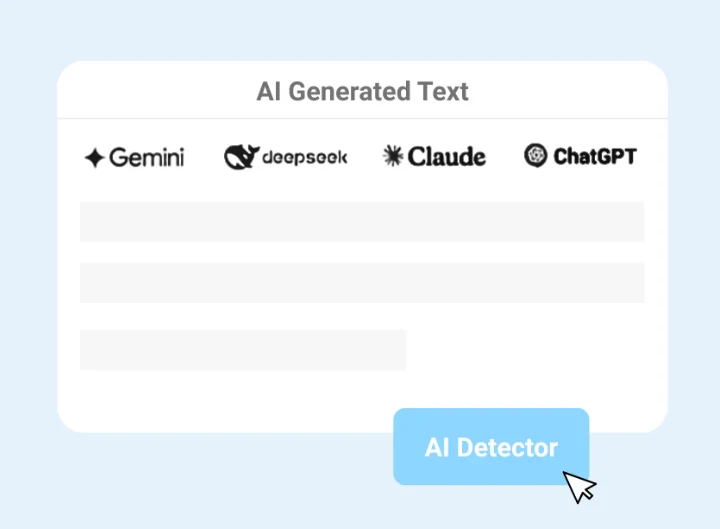Does AI Have A Role To Play In Mental Health Support?

Are you wondering how Artificial Intelligence (AI) can enhance mental health support? Did you know that AI-powered chatbots have been associated with significant improvements in managing substance use, depression, and anxiety? This blog will delve into the pivotal role that AI potentially plays in providing personalized care, increasing access to services, and supporting mental health professionals.
Don’t miss out on discovering how technology could revolutionize your healthcare experience!
Key Takeaways
- AI has the potential to personalize mental health care by analyzing patient data and creating customized treatment plans.
- AI can increase access to mental health support through telehealth services and AI-powered tools like chatbots, especially for marginalized communities.
- AI improves efficiency in mental health treatment by automating administrative tasks and providing real-time monitoring of patients’ symptoms.
The Current State of Mental Health
Many people across the globe face daily struggles due to mental health disorders. An increase in conditions like depression, anxiety, and substance use disorders has led to a growing mental health crisis worldwide.
This situation was further aggravated by the COVID-19 pandemic, triggering higher rates of stress and isolation. As a result, telehealth services for mental health have witnessed an unprecedented boom.
Despite this progress in digital healthcare delivery methods, many individuals are still unable to access vital treatment options due to geographical barriers or stigma surrounding mental healthcare.
The Trevor Project and Google.org jointly launched The Crisis Contact Simulator to address these issues. This AI-powered counselor training tool simulates digital conversations with LGBTQ youths experiencing crises—providing realistic practice scenarios for aspiring counselors while tackling accessibility concerns head-on.
The Role of Artificial Intelligence in Mental Health
Artificial Intelligence plays a crucial role in mental health by personalizing care, increasing access, and providing support to individuals in need.
Personalizing Care
AI tools offer immense possibilities in the field of personalized mental healthcare. By collecting and analyzing vast amounts of data, AI systems can create customized care plans tailored to each patient’s individual needs.
These plans consider various factors like a patient’s medical history, genetic information, and past therapy sessions.
In mental healthcare, personalization goes beyond just treatment protocols; it extends to risk assessment as well. Artificial Intelligence plays a pivotal role in this by analyzing patient data to assess the likelihood of developing certain mental health disorders or conditions.
This predictive capability enables proactive steps towards preventing the onset or progression of these disorders, enhancing overall care quality.
Increasing Access
AI is making strides in improving accessibility to mental health support. Telehealth services that utilize artificial intelligence are experiencing a surge due to the COVID-19 pandemic, particularly in the realm of mental healthcare.
These services are instrumental not just for those looking for help but also for those seeking guidance on how to provide it. An example includes The Trevor Project’s collaboration with Google.org, which led to the creation of an AI-powered counselor training tool called ‘The Crisis Contact Simulator’.
This remarkable technology simulates conversations with LGBTQ youth undergoing crisis situations, equipping aspiring counselors with realistic practice experiences. In this way, AI tools like this simulator are elevating access and equity in mental health services by reaching out even more effectively to marginalized communities such as LGBTQ youth.
Providing Support
AI-powered chatbots are revolutionizing the realm of mental health support by providing service 24/7. These digital tools offer real-time assistance, delivering self-assessment exercises and guiding users through therapy sessions.
Furthermore, they also give advice based on individual needs and monitor progress over time. More than just scheduling appointments or sharing information, artificial intelligence goes a step further by analyzing electronic health records and social media data to tailor treatment plans effectively.
The Potential Impact of AI in Mental Health Services
AI has the potential to significantly expand access to mental health services and reduce costs, making it a crucial tool in addressing the growing mental health crisis. Read on to learn more about its potential impact on improving mental healthcare.
Expanding Access
AI has the potential to significantly expand access to mental health services, particularly for individuals who may face barriers in seeking traditional care. With the use of AI-driven platforms and technologies, mental health support can be offered remotely and at scale.
This means that people residing in remote areas or those with limited mobility can still receive timely assistance. Additionally, marginalized groups, such as LGBTQ youth, who often encounter unique challenges accessing mental health care, can benefit from AI-powered interventions that are specifically tailored to their needs.
Overall, by leveraging AI tools and solutions, we can broaden the reach of mental health services and ensure that more individuals have access to the support they need.
Reducing Costs
AI has the potential to significantly reduce costs in mental health services. By automating certain tasks and processes, AI can streamline administrative work, allowing mental health professionals to focus more on patient care.
Additionally, AI-based tools can help identify early warning signs of mental distress, enabling interventions before conditions worsen and become more expensive to treat. Furthermore, AI systems have the capability to analyze large amounts of data efficiently and accurately, reducing the need for costly manual analysis.
With these cost-saving benefits, AI can make mental health services more affordable and accessible for individuals seeking help.
Challenges Facing AI in Mental Health
Ensuring AI helps, not harms, and overcoming technical and ethical hurdles are key challenges in the field of AI in mental health. To discover how these challenges can be addressed, continue reading.
Ensuring AI Helps, Not Harms
AI has immense potential to revolutionize mental healthcare, but it is crucial to ensure that its implementation does not cause harm. As AI continues to develop in this field, it is essential to address technical and ethical challenges.
This includes concerns about patient privacy and data security, the impact of AI bias on diagnosis and treatment recommendations, maintaining a balance between human care and AI-driven solutions, and establishing regulatory oversight.
By actively addressing these issues, we can harness the power of AI to improve mental health services while prioritizing patient safety and well-being.
Overcoming Technical and Ethical Hurdles
AI in mental health care faces several technical and ethical hurdles. These challenges need to be addressed to ensure the effectiveness and responsible use of AI technology in supporting mental health:
- Ensuring data privacy and security: The use of AI involves handling sensitive patient data, including personal health information. Protecting this data from breaches and unauthorized access is crucial.
- Overcoming bias in algorithms: AI algorithms are only as good as the data they are trained on. Bias in the input data can lead to biased outcomes, potentially exacerbating existing disparities in mental health care.
- Striking a balance between human touch and automation: While AI can automate certain tasks, it’s important to find the right balance between technology and human involvement. Maintaining a human connection is vital for effective mental health support.
- Establishing regulatory oversight: As AI becomes more prominent in mental health care, appropriate regulations must be put in place to ensure the safety, accountability, and ethical use of AI systems.
- Building trust with patients and healthcare providers: Adopting new technologies like AI requires gaining trust from both patients and healthcare professionals. Transparency about how AI tools work and their limitations is essential.
- Addressing potential job displacement: The introduction of AI systems may raise concerns about job loss among mental health professionals. Finding solutions that augment their skills rather than replace them will be important for successful implementation.
- Ethical considerations surrounding patient autonomy and consent: Using AI may involve making decisions on behalf of patients or analyzing their data without their explicit consent. Respecting patient autonomy while utilizing technology is critical.
Examples of AI Revolutionizing Mental Healthcare
AI is revolutionizing mental healthcare by:
- The Trevor Project partnered with Google.org to launch The Crisis Contact Simulator, an AI-powered counselor training tool for LGBTQ youth in crisis.
- Woebot, an AI-powered chatbot, has shown significant improvements in treating substance use disorders and related issues.
- AI-powered chatbots provide real-time support 24/7 and reduce the stigma surrounding mental health treatment.
- AI has the potential to increase access to mental health services, especially for marginalized groups like LGBTQ youth.
- AI can collect and analyze large amounts of data to personalize and improve patient care in mental healthcare.
Benefits of Using AI in Mental Health Treatment
AI offers several benefits in the field of mental health treatment. These include:
- Personalized care: AI systems can collect and analyze large amounts of data to tailor treatments to individual patients, ensuring more effective and targeted interventions.
- Increased access: AI-powered tools like telehealth services and chatbots provide round-the-clock accessibility to mental health support, particularly for those in remote or underserved areas.
- Improved efficiency: AI algorithms can streamline administrative tasks, allowing mental health professionals to focus more on direct patient care and reducing waiting times for treatment.
- Enhanced diagnosis and prediction: AI technologies can help identify early warning signs and predict the onset of mental health disorders, enabling timely interventions and preventive measures.
- Advanced treatment options: AI-driven platforms offer innovative therapeutic tools, such as virtual reality-assisted therapies or digital cognitive behavioral therapy programs, which can supplement traditional approaches and improve outcomes.
- Real-time monitoring: AI-based solutions enable continuous monitoring of patients’ mental health symptoms, vital signs, and medication adherence. This real-time data allows for proactive intervention and personalized adjustments to treatment plans.
- Data-driven research and insights: By analyzing vast amounts of patient data, AI facilitates research into the effectiveness of different treatments, contributing to evidence-based practices.
Current Trends in AI and Mental Health
AI is continuing to make advancements in the field of mental health, with several current trends shaping its use and impact:
- Increasing integration of AI in telehealth platforms, allowing for remote mental health consultations and treatment.
- Development of AI-powered chatbots and virtual assistants that can provide immediate support and resources to individuals experiencing mental distress.
- Utilization of AI algorithms to analyze and interpret data from wearable devices, such as vital signs, to monitor an individual’s mental health in real-time.
- Integration of AI technologies into electronic health records to improve data analysis and facilitate more personalized treatment plans.
- Application of AI-driven predictive models to identify individuals at risk for developing mental disorders and provide early interventions.
- Collaboration between academia and industry to further explore the potential benefits of AI in mental healthcare, ensuring clinical utility and evidence-based practices.
- Focus on addressing ethical concerns surrounding AI in mental health, including privacy, bias, and the appropriate role of AI versus human care providers.
- Exploration of novel therapeutic approaches, such as neuroimaging and genetic data analysis using AI algorithms, to better understand the underlying mechanisms behind mental illnesses.
The Future of AI and Mental Health
AI has immense potential to transform the future of mental health. As technology continues to advance, AI algorithms and systems are becoming more sophisticated in their ability to analyze data and provide personalized care.
In the future, AI could play a key role in the early detection and prediction of mental disorders, allowing for timely intervention and treatment. With real-time patient monitoring through wearable devices and mental health tracking tools, AI can provide continuous support and feedback to individuals experiencing mental distress.
Furthermore, AI-driven platforms have the potential to expand access to mental health services by providing virtual therapy sessions and digital therapeutic tools. This can be particularly beneficial for those in remote areas or with limited resources.
However, as we look towards the future of AI in mental health, it is crucial that ethical considerations such as data privacy and security are prioritized. Regulatory oversight should also be implemented to ensure that AI technologies adhere to standards of clinical efficacy and patient safety.
The integration of human clinicians alongside AI-based therapists will be essential in maintaining trust between patients and healthcare providers.
In summary, the future of AI in mental health holds great promise for improving diagnosis accuracy, expanding access to care, providing personalized support, reducing stigma around seeking treatment, and enhancing overall outcomes for individuals struggling with mental health conditions.
While there are challenges that need addressing along the way, the collaboration between technology advancements and human expertise will pave the way for an innovative approach to mental healthcare delivery in the years ahead.
Conclusion
In conclusion, AI has the potential to revolutionize mental health support by personalizing care, increasing access, and providing ongoing support. It can expand access to underserved populations, reduce costs, and improve clinical outcomes.
However, challenges such as ensuring ethical use and overcoming technical barriers must be addressed for AI to effectively enhance mental healthcare services. The future of AI in mental health looks promising but requires collaboration between technology developers and mental health professionals to ensure compassionate care and successful integration.

Why Retail Software Testing is Critical for Effective E-commerce Development?

How Sales Teams Increased Productivity with Parallel Dialers

Curtain Dry Cleaning and Leather Sofa Cleaning – Reliable Care by Duo Nini

The Ultimate Guide to Family-Friendly Communities: Planning Your Family Vacation to Destin Florida

How Condensed Fonts Improve Packaging and Label Design

Unlocking Innovation: How an AI Software Development Service Can Transform Your Business

Artificial Intelligence: Transforming the Future of Business and Everyday Life

AI-Driven Image Restoration & Reuse: VisualGPT AI Image Sharpener











